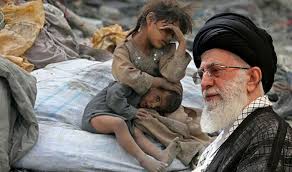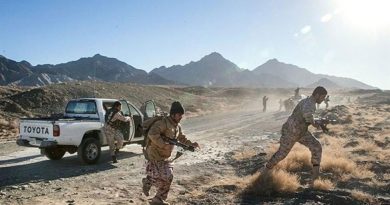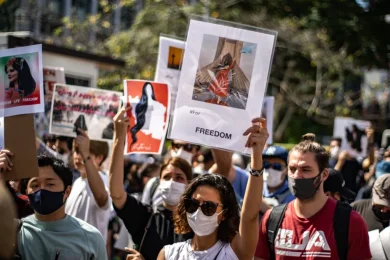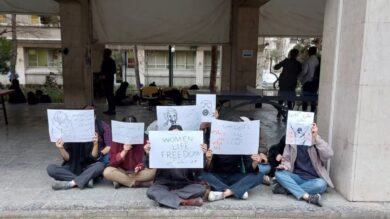The Iranian diaspora plays a critical role in supporting Iran’s freedom movement, advocating for human rights, democracy, and justice from outside the country. Spread across the United States, Canada, Europe, and beyond, Iranians abroad have become a powerful voice against the Iranian regime’s repression and human rights violations, particularly those committed by the Islamic Revolutionary Guard Corps (IRGC).
Through political activism, digital resistance, financial aid, and media outreach, the Iranian diaspora has significantly contributed to global awareness, sanctions efforts, and support for activists inside Iran. This report explores the influence, challenges, and impact of the Iranian diaspora in the ongoing struggle for freedom and justice in Iran.
1. The Importance of the Iranian Diaspora in Advocacy
The Iranian diaspora has emerged as one of the most vocal and organized opposition forces against the Iranian regime, influencing governments, media, and international organizations.
A. Political Advocacy and Lobbying
• Iranian diaspora activists work with lawmakers and policymakers to push for sanctions, resolutions, and political pressure against the Iranian government and the IRGC.
• Organizations like the National Union for Democracy in Iran (NUFDI), Human Rights Activists in Iran (HRA), and Iranian-American groups lobby for human rights policies and increased international scrutiny of the regime.
• Efforts have led to sanctions on IRGC officials, resolutions in the U.S. Congress, European Parliament, and UN human rights bodies condemning Iran’s human rights violations.
B. Raising Global Awareness Through Protests
• Since the Women, Life, Freedom movement began in 2022, Iranian diaspora communities have organized mass protests in cities such as Berlin, Washington D.C., Paris, London, and Toronto.
• These protests keep international attention focused on Iran, preventing the movement from fading from global discussions.
C. Digital Activism and Social Media Campaigns
• Iranian diaspora activists use Twitter, Instagram, and Telegram to share news, protest videos, and government abuses that Iranian state-controlled media censors.
• Viral hashtags like #MahsaAmini, #StopIRGC, and #WomenLifeFreedom have reached millions worldwide, influencing public perception and government policies.
2. Providing Financial and Humanitarian Support
A. Financial Assistance to Families of Political Prisoners
• Many activists inside Iran are imprisoned, tortured, or killed, leaving their families struggling financially.
• Diaspora-led organizations raise funds to help families of detainees, providing them with essential resources for legal and medical aid.
B. Support for Refugees and Dissidents
• Many Iranian activists are forced to flee Iran due to IRGC persecution, seeking asylum in countries such as Germany, France, Canada, and the U.S.
• Diaspora groups assist these refugees by helping them with legal representation, resettlement programs, and financial aid.
C. Funding Independent Persian-Language Media
• Diaspora-backed media outlets like Iran International, BBC Persian, Radio Farda, and Manoto TV provide uncensored news about Iran.
• These platforms are essential in countering IRGC propaganda and exposing human rights violations.
3. Countering IRGC Disinformation and Cyber Attacks
A. Fighting Regime Propaganda
• The Iranian government spreads false narratives through state-controlled media, portraying the diaspora as “foreign agents” or “traitors.”
• Diaspora activists counter this misinformation by fact-checking and exposing government lies about protests, human rights abuses, and economic conditions.
B. Digital Security and Cyber Protection
• The IRGC targets activists abroad with hacking attempts, cyber harassment, and intimidation tactics.
• Iranian cybersecurity experts in exile provide VPNs, encrypted messaging services, and cybersecurity training to protect activists inside Iran.
4. Stories of Diaspora Activists Leading the Fight
A. Masih Alinejad: A Voice for Iranian Women
• Masih Alinejad, a U.S.-based journalist and activist, launched the “White Wednesdays” and “My Stealthy Freedom” campaigns against Iran’s mandatory hijab laws.
• She has been targeted by IRGC assassination and kidnapping plots but continues to amplify Iranian women’s voices globally.
B. Nazanin Boniadi: Advocacy in Hollywood and Beyond
• The Iranian-British actress and activist uses her platform to advocate for human rights, speaking at the UN and global conferences.
• She actively supports sanctions on the IRGC and campaigns for women’s rights in Iran.
C. Hamed Esmaeilion: A Voice for Justice
• Hamed Esmaeilion, a Canada-based Iranian activist, became a key figure after Iran shot down Ukraine International Airlines Flight PS752, killing his wife and daughter.
• He leads efforts for justice and accountability against the Iranian regime, mobilizing large protests worldwide.
5. Challenges Faced by the Iranian Diaspora
A. Threats and Harassment by the IRGC
• The IRGC actively targets diaspora activists, attempting kidnappings, assassinations, and cyber intimidation.
• Iranian agents have been arrested in the U.S. and Europe for attempting to silence activists abroad.
B. Internal Divisions and Political Fragmentation
• The Iranian diaspora is diverse, consisting of secularists, monarchists, republicans, reformists, and ethnic minorities.
• Disagreements over political solutions sometimes create divisions, weakening collective action.
C. Lack of Direct Influence on Iran’s Politics
• While the diaspora can lobby foreign governments, it has limited direct influence on Iran’s internal politics.
• Activists must coordinate closely with those inside Iran to ensure meaningful impact.
6. How the International Community Can Strengthen Diaspora Efforts
A. Governments Must Recognize the IRGC as a Terrorist Organization
• Many Iranian activists urge countries like the EU and Canada to fully designate the IRGC as a terrorist entity, cutting off its financial networks.
B. Strengthening Support for Independent Media
• Governments and NGOs should increase funding for Persian-language independent media to counter regime propaganda.
C. Protecting Activists from IRGC Threats
• Security services in the U.S., Europe, and Canada must do more to protect Iranian dissidents from IRGC-backed threats.
D. Providing More Humanitarian Assistance to Iranian Refugees
• Many Iranian activists flee the country and struggle to obtain asylum. Western governments should facilitate faster resettlement processes for Iranian political refugees.
Conclusion: A Growing Force for Change
The Iranian diaspora plays a crucial role in Iran’s freedom movement, acting as a voice for the voiceless, pressuring governments, and supporting activists on the ground. Despite facing IRGC threats, divisions, and political challenges, Iranians abroad remain a powerful force for justice, democracy, and human rights.
With continued international support, stronger sanctions on the IRGC, and unified action, the Iranian diaspora can further empower those fighting for a free and democratic Iran.
Join Our Newsletter!
Stay informed with the latest updates, news, and ways to take action in the fight for justice and global security. Sign up now to get updates delivered straight to your inbox!





